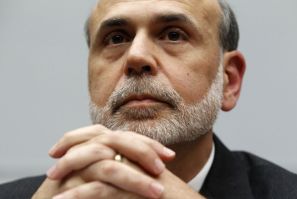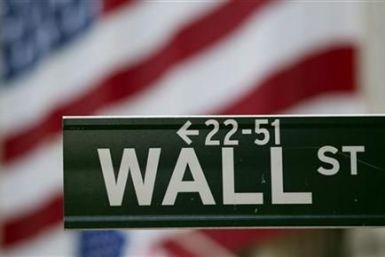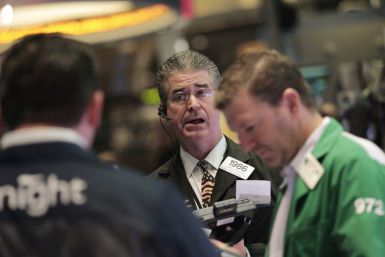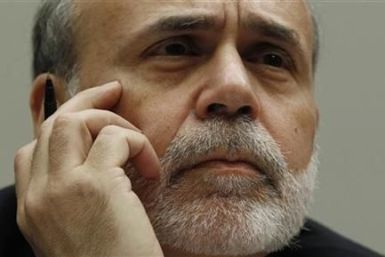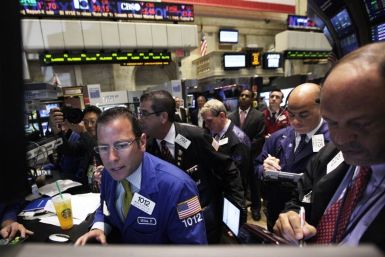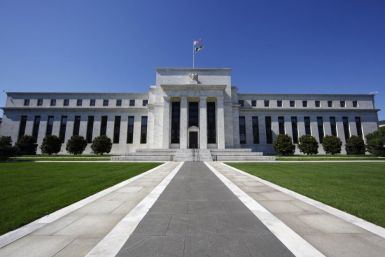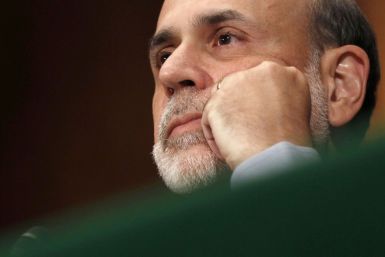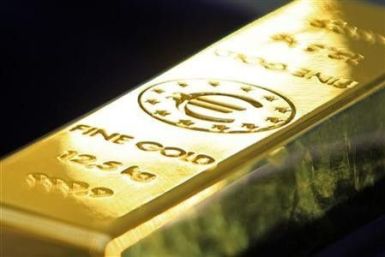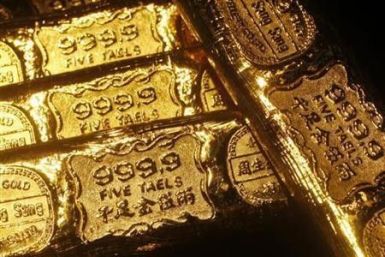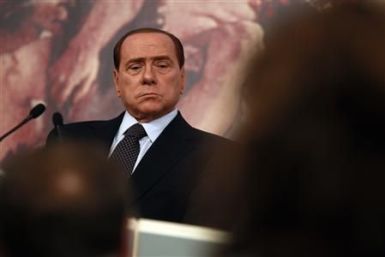To say it's been an unsettling time for U.S. stock investors would be an understatement. The Dow has been on a wild ride, with plunges followed by sudden reversals. Look for market choppiness to continue until investors determine whether the Fed's latest monetary policy decision -- low interest rates for two years -- will be enough to rev-up U.S. GDP growth.
World shares clawed back more ground on Wednesday as investors rattled by a run of heavy losses took comfort from the Federal Reserve's pledge to keep interest rates near zero for two more years.
Goldman Sachs said on Wednesday a third round of quantitative easing from the Federal Reserve is likely after the U.S. Federal Reserve promised to keep rates at extraordinarily low levels for at least two more years.
The United States could launch a new round of quantitative monetary easing, China's top economic planner said on Wednesday in a statement addressing the country's future inflation risks.
Wall Street economists see odds of around one-in-three the United States will slip back into recession, heightening expectations the Federal Reserve will launch another round of unconventional credit easing.
The global central bank community is uniting to put a halt to the current bout of financial volatility.
The magic words, in Fedspeak, to signal further quantitative easing (QE) is something about the underlying inflation being below what the Fed judges to be appropriate with its dual mandate of maximum employment and price stability.
Now that Uncle Sam has dug itself into a $14 trillion hole, it?s the American taxpayer who should be warning Ben Bernanke and his government cronies about the irrationalities of their exuberant paper printing.
The United States faces one-in-four odds of slipping back into recession, and a weaker economic outlook is raising the likelihood the Federal Reserve will soon do more to boost growth, a Reuters poll shows.
Read Tuesday's full statement from the Fed.
U.S. stocks pared gains after the Federal Reserve released its August Federal Open Markets Committee statement at 2:15 ET.
Gold extended its gains on Tuesday after the Federal Reserve said it would keep interest rates low for at least another two years to help a U.S. economy that is growing considerably weaker than expected.
In response to a slowing economy, the U.S. Federal Reserve, despite some internal dissent, announced Tuesday that it plans to keep monetary policy stimulus in place, noting that it will keep short-term interests rates exceptionally low through at least mid-2013. The Fed will also continue to reinvest bond proceeds maturing in its portfolio.
The U.S. Federal Reserve will announce its monetary policy Tuesday following an unprecedented downgrade of the U.S.Government's credit rating by Standard & Poor's and the markets will likely look to Fed Chairman Ben Bernanke to provide appropriate comments on the state of the nation's banking system and its fiscal condition.
Mauritius is cutting its foreign reserve exposure to the U.S. dollar and the euro due to debt concerns in both regions by purchasing commodity currencies and is eyeing government securities from some of the BRIC nations, it said on Monday.
Gold vaulted to record highs above $1,700 an ounce on Monday, surging nearly 3 percent as European Central Bank's buying of Italian and Spanish bonds failed to ease debt fears after Standard & Poor's cut the top-notch AAA credit rating of the United States.
Gold vaulted above $1,700 an ounce for the first time on Monday after pledges by the G7 and the European Central Bank to quell the turbulence in the financial markets did nothing to put investors at ease.
Britain and several euro zone countries are likely to have their credit ratings cut in coming months as debt problems worsen, and Western policymakers are bound to embark on more quantitative easing to get their economies moving, American investor Jim Rogers said on Monday.
Bullion roared to record highs above $1,700 an ounce on Monday as an unprecedented downgrade to the U.S. credit rating sent investors scrambling out of riskier assets, hammering equity markets and the dollar.
Japan's Nikkei stock average slid more than 2 percent on Monday as weak sentiment following Standard & Poor's downgrade of the United States' credit rating was exacerbated by futures selling after Asian markets tumbled.
The European Central Bank stepped into bond markets on Monday, backing up a pledge to support Spain and Italy with the aim of averting financial meltdown in the euro zone, while the G7 and G20 offered soothing words to investors shaken by a historic downgrade of the U.S. debt rating.
Bullion roared to a record on Monday above $1,700 an ounce as an unprecedented downgrade to the U.S. credit rating sent investors scrambling out of riskier assets, hammering equity markets and the dollar.







